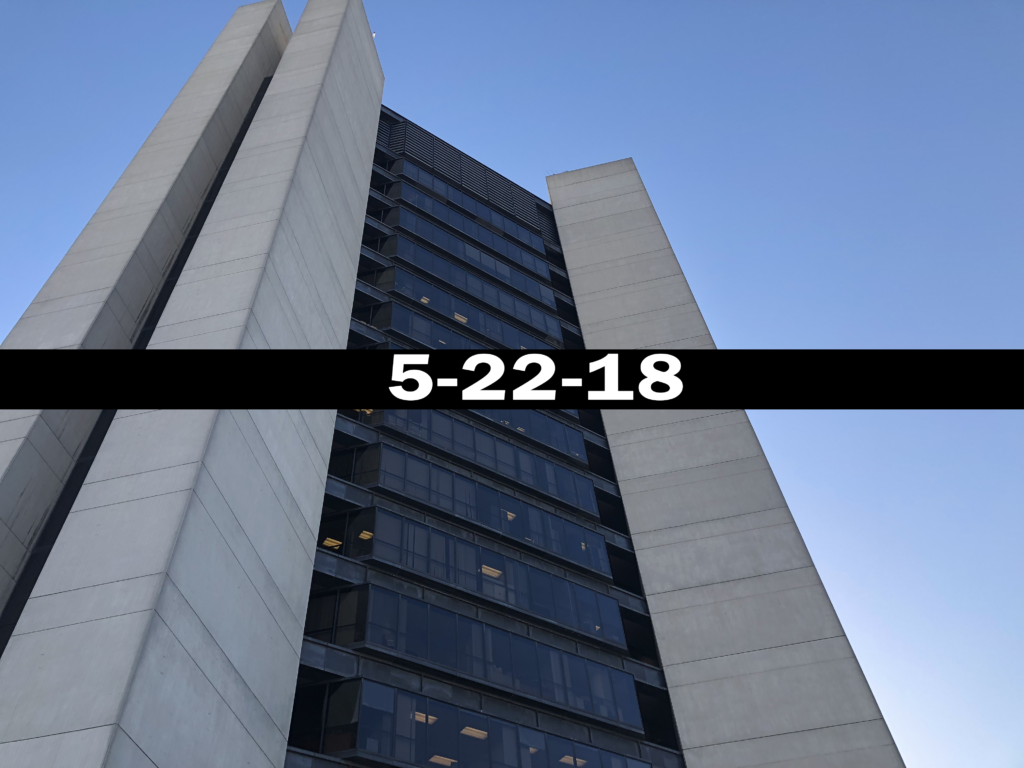Last Night @ City Council – Pearce Censured, Pike Keeps Mall Resource Officer, City Budgets Police Brutality Settlements
6 minute readPearce Censured
The council voted to publicly reprimand Councilperson Jeannine Pearce (CD-2) last night for behavior that violated the city’s code of ethics, stemming from a romantic relationship she had with a subordinate.
Pearce was the only person behind the dais to speak on the item before the unanimous vote. Reading from a prepared statement, she apologized to her colleagues, constituents, and the city, saying that she “accepted and acknowledged the censure as a call to do better.”
It was the first time in 25 years that the council has censured one of its own members.
The scandal had been bubbling beneath the surface of city officialdom for nearly a year, but outside the council chambers it has snowballed into an effort to remove Pearce from office.
Recently, a committee led by political consultant Ian Sean Patton turned in signatures to the city clerk to put a recall vote on the November ballot. The signatures are currently being verified line-by-line.
The scandal spilled over into the public eye after a pre-dawn dustup last June on the southbound shoulder of the 710 freeway between Pearce and her former chief of staff, Devin Cotter, whom she had previously dated for three years.
LBPD officers breathalyzed Pearce that night, who was at the wheel and blew a .06 alcohol-level, under the legal limit to drive. The Los Angeles County District Attorney’s office, which ultimately decided not to criminally charge Pearce, later revealed that the breathalyzer officers used that night had been flagged as faulty.
Cotter, who suffered injuries to his face during the roadside altercation, accused the Councilperson of shoving him to the ground. Pearce has claimed it was self-defense.
Cotter was arrested later that morning near Pearce’s home for public intoxication—the charge was later dismissed—and for a warrant he had for a 2014 DUI conviction.

Photo taken by LBPD of the 710 shoulder between Sixth Street and Ocean Boulevard, where they say the altercation involving Pearce and Cotter occurred on June 3.
At the time of the incident, Cotter had already resigned as Pearce’s chief of staff. It was later revealed that the city attorney’s office had negotiated an agreement for his termination of employment with the city in December 2016.
He had previously worked as Mayor Robert Garcia’s campaign manager in 2014, and later as his legislative deputy until July 2016.
During last night’s Council meeting, Pearce said that trauma endured during her childhood clouded her judgement.
“I do not say this to excuse my behavior but to acknowledge that I am learning and growing. I now know better to recognize the pitfalls that led me into an abusive relationship where I put the public’s trust and frankly my life on the line,” she said.
Councilpersons Al Austin (CD-8), Suzie Price (CD-3), Dee Andrews (CD-6), and Daryl Supernaw (CD-4) who put the censure on the agenda wrote in the staff report that Pearce “hiring an employee with whom she was in an active relationship with exposed the City to significant risk for potential sexual harassment and conflict of interest.”
During public testimony, Pearce’s detractors expressed feeling “embarrassed” and “disappointed” by the Councilperson’s behavior, with some going so far as to call for her resignation.
Her supporters said the verbal flogging only served to further traumatize a woman who is a survivor of abuse.
“It’s not going to help her heal, it’s not going to help her move past, you four should be ashamed,” Jorge Rivera of Long Beach Residents Empowered said, gesturing toward the authors of the censure item.
Pearce accused Cotter of having “a history of narcissistic rage that has manifested with threats, blackmail, stalking, harassing and character assassination over the last 10 months,” in a restraining order application filed in January.
Questions also arose over the motivations behind the public reproach and whether corporations were tipping the scale of the city’s democratic process, especially with the recall signatures still being verified.
Tomisin Oluwole
Coquette
Acrylic on canvas
18 x 24 inches
Click here to check out our interview with Tomisin Oluwole, a a literary and visual artist based in Long Beach.

Instead of gunking up our site with ads, we use this space to display and promote the work of local artists.
The recall push has been heavily bankrolled by the hotel industry, which Pearce has sparred with in and out of office. Before being elected, she worked as a labor organizer and campaigned for Measure N, which mandated a living wage for the city’s non-union hotel workers.
Last fall, she co-sponsored an ordinance known as Claudia’s Law, that would have codified various protections for the overwhelmingly female hospitality industry workers in Long Beach. The law ultimately failed to pass by a narrow 5-4 margin, with Austin, Price, Andrews, and Supernaw being among those who voted against it.
This led some of Pearce’s supporters who spoke last night to accuse the Councilpersons who submitted the censure item of being mouthpieces for the hotel industry, which they claim wants to exploit the situation to remove an ally of hotel workers.
In their most recent council campaigns, Price received $3,300 from the hotel industry, Andrews $600, and Austin $450 (the Marriott Hotels also slipped $750 into his officeholder account last year), according to our analysis of campaign finance disclosures. It does not appear Supernaw received contributions from the hotel industry.
Although the censure has no legal repercussions, Pearce is still facing a corruption investigation by the Los Angeles County District Attorney’s Public Integrity Division.
Pike Keeps Mall Resource Officer
The Council unanimously voted to extend an arrangement between Pike Outlets owner DDR Urban LP and the LBPD that provides “supplemental law enforcement services” at the shopping center. The deal, originally inked in December 2016, was extended for a year.
“We’ve seen a dramatic decrease in crime decrease in that area, specifically since the contract began in 2016,” said LBPD administrator Brandon Walker during the hearing.
He explained that the arrangement will provide one officer who will be on location during hours of operation.
The $43,752 cost of providing the officer will be reimbursed to the city by DDR Urban LP.
Budget Adjustments
The Council unanimously approved several adjustments to departmental and special fund appropriations. We’ve highlighted two of the allocations below.
‣ The Economic Development Department asked for an additional $26,000 from the General Fund to pay for repairs of surveillance cameras owned by the Zaferia Business Association, as well as personnel to operate them. The money was already earmarked for a preexisting program the city runs called “Eyes on Anaheim.”
However, it raises questions about why the city is expending public resources to maintain and run cameras for a business association whose members include Farmers & Merchants Bank and several large corporations, such as Enterprise Rent-A-Car and State Farm Insurance.
The money earmarked for the program comes from funds set aside for park and infrastructure improvements.
‣ The city reported that it will need to increase general fund appropriations to the city’s Insurance Fund by $7.3 million to pay for several lawsuit settlements, including $4.4 million in settlements linked to police brutality by LBPD.
Khanly Saycon and Anna Luz Saycon, family members of Mharloun Saycon, who was shot and killed by police in 2015, will receive $2 million.
Miguel Contreras and Miguel Vazquez, cousins who both endured a baton beating by police in 2010, will receive $2.4 million.
Follow @LBCMtgNotes on Twitter for live updates during every City Council meeting.
Please support local grassroots media by subscribing to FORTHE.


 editors@forthe.org
editors@forthe.org




